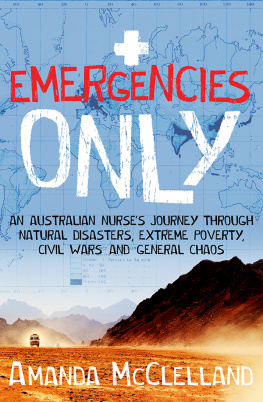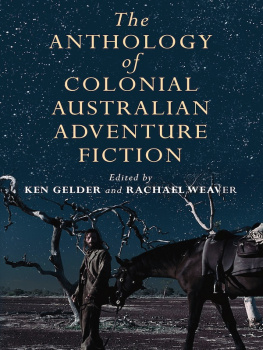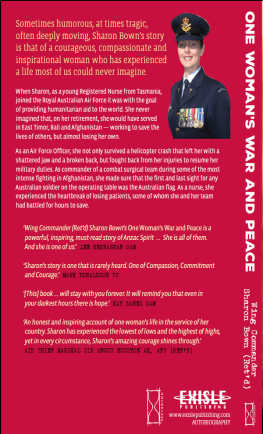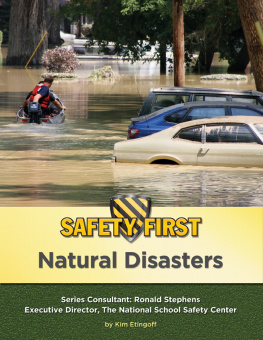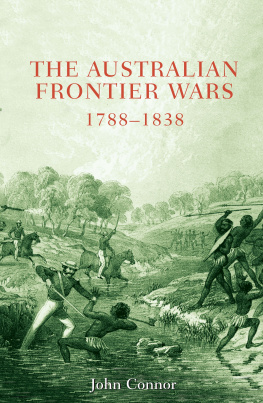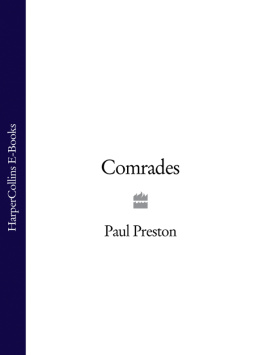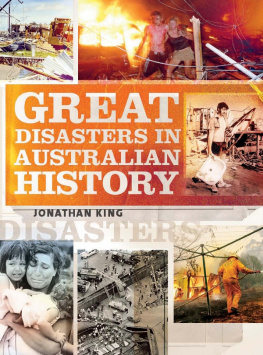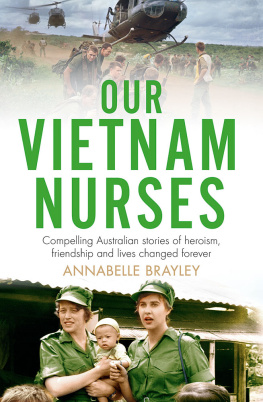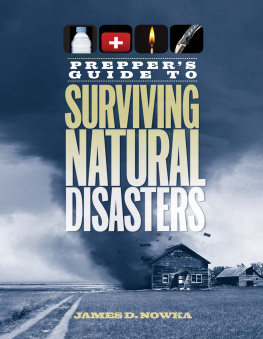There is one road in and out of Alice Springs and it runs 1500 kilometres in either direction. Smack bang in the middle of the Stuart Highway, surrounded by red desert, Alice is a squat and dusty little town. It has palm trees, scrub and bone-dry streets, a few pubs and a parched football ground. At four storeys, the Alice Springs Hospital is the tallest building in townat least it was when I arrived. I was twenty-one years old, a newly qualified nurse. Alice was the beginning.
I hadnt dreamed of becoming a nurse. I hadnt pictured myself dressing wounds and changing bedpans by lamplight, with a little red cross embroidered over my heart. I thought I might be a cartoonist, or maybe a teacher. I had seriously considered joining the police force, but my mother talked me out of it. She was convinced I wouldnt get to have a family if I signed upI think she assumed that all female police officers had to take a vow of celibacy. If I was a nurse I could have kids, my mother reasoned. I was going to disappoint her there.
Mum was a nurses aide, and later a phlebotomist. She always thought I would do something to help people because I was very community-minded, but I took to nursing because it was interesting, not because I was on some mission to make the world a better place. I started the degree initially because I didnt get the points for physiotherapy, figuring I would transfer across later in the program. But nursing turned out to be so diverse and interesting, I didnt want to leave.
During the three-year course, we did a number of different work placements so that we could learn the vital practical aspects of the job and get a feel for the different areas of healthcare. I spent some time in a family planning clinic in the red-light district of Brisbane, listening to qualified nurses counsel pregnant teenagers and treat sexual health problems. It taught me a lot about the importance of communication (and gave me a paralysing fear of STDs). My next placement was in a psychiatric care facility, where a very pleasant man, wearing nothing but a nappy, chatted to me about the joys of drinking coffee from a babys bottle. Later I spent some time in a nursing home where, at the age of eighteen, I gave my first sponge bath to an elderly gentleman. I giggled uncontrollably at the time but those awkward physical encounters were soon just another part of the job.
My final work placement was at the Royal Childrens Hospital in Brisbane, a bright building with cartoon characters painted on the walls. I knew almost as soon as I started that I wanted to be a paediatric nurse. Kids made for interesting patients. Adults are fairly robust; theyre better able to cope if you make a mistake with medication or observations, and they can tell you if they dont feel right. Children are less likely to communicate that somethings going wrong, and when they crash, they crash fast. The margin of error with children is really small, and for me that represented a real challenge. There was a lot of joy in it, too. I studied hard, but I also spent a lot of time making balloon animals from rubber gloves and playing PlayStation with my patients. I thought paediatric nursing was cool.
Early in my placement, I was assigned to an orthopaedic ward where a toddler had had a full hindquarter amputation: hed lost one of his legs from the hip. He had just come out of the operating theatre, so the mood in the ward was very serious, and the clinical nurse asked me to continue his post-operative observations while the team met with the parents to discuss the rehabilitation strategy. The kid would have to relearn how to roll over, sit up and, eventually, how to walk. There was a long, difficult road ahead.
The thing is, when I got to his ward, the little boy was already on his feet (or foot, as it were). He was standing up, peering out between the bars of his cot, wondering where everyone had gone. He sat down with a bump when I walked in, happy as anything. Good job, kid, I smiled. The room next door was full of specialists worrying about how they were going to realign his balance and get him mobile again, but the little boy had figured it out for himself in about five minutes. The biggest problem we had all day was trying to keep a nappy on a one-legged toddler without having to use gaffer tape.
I had an epiphany. I realised I liked working with kids because theyre so resilient; they bounce back quickly. And because we saw such great results, the work was really satisfying. I became quite addicted to that feeling during my career. Some people work their whole lives to achieve small, incremental changes, but that isnt my style. When it comes to making an impact, I prefer things fast and dramatic.
When I finished my degree, I was offered a graduate position at the Royal Childrens and continued working there for the next eighteen months. I was lucky to be offered the position and I loved the job, but I knew I didnt want to spend my entire career working at the same hospital. It bothered me that many of the senior nurses there had never worked anywhere else.
Some of the younger nurses were talking about moving to London for a yearthere was virtually an exchange program between the Royal Childrens Hospital in Brisbane and Great Ormond Street Hospital in Londonbut I knew that wasnt for me. I didnt want to live in a congested European city, drinking and partying every weekend. I wanted to see more of Australia before I went overseas.
One day, a little Aboriginal girl from the south of Queensland was brought into the hospital with severe burns to her groin and bottom. She had pulled a pot of boiling water off the stove, spilling it all over her little body, and while the family had taken her straight to the bathroom to run her under cold water, they hadnt thought to take off her nappy. The water had pooled under the plastic sheath and burned her severely, leaving livid pink wounds on her.
The paediatric burns unit at the Royal Childrens relied heavily on the parents support when they treated babies. When a child had severe burns, the nurses would bathe it and use the water to slough off the dead epidermis. The child was sedated, of course, but it was still incredibly painful, and the parents were expected to be there to help the kid get through it. The mother of this little girl hadnt been there for the bath, for some reason. I heard the other nurses muttering about it; they were dumbfounded. The mother hadnt been there much at all since the child was admitted.
When the mum did come in, she looked frightened and lost. There was an Aboriginal liaison officer on the ward, but she didnt seem to understand any better than the nursing staff what had gone wrong, or where the woman had been. The liaison officer asked her why she hadnt used the taxi voucher shed been given, but the mother had had no idea how to call a taxi. Theyd given her an ATM card, but she had never used one before. The woman hadnt eaten, because she didnt know where to get food. She was too afraid to go into the supermarket. In ways we couldnt begin to understand, she was completely overwhelmed by the city. I didnt quite know what to make of it, but it didnt seem right.
A week or so after Id had this encounter, I came across a job advertisement for the hospital in Alice Springs. It was a paediatric nursing role working in Aboriginal health, in the dead centre of the country, servicing a small community in the desert, roughly three thousand kilometres from Brisbane along vast stretches of sunburnt roads. I thought of that little Aboriginal girl and her mother, wondering if there was something I could learn that would have improved their experience. I liked the idea of working in the outback. The timing was greatI had just bought a four-wheel drive.

